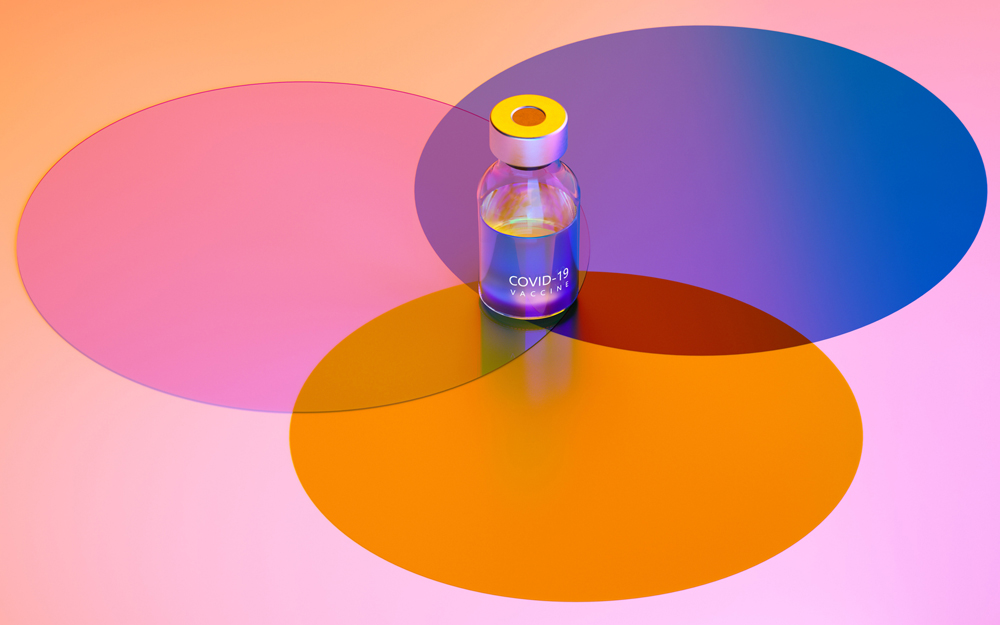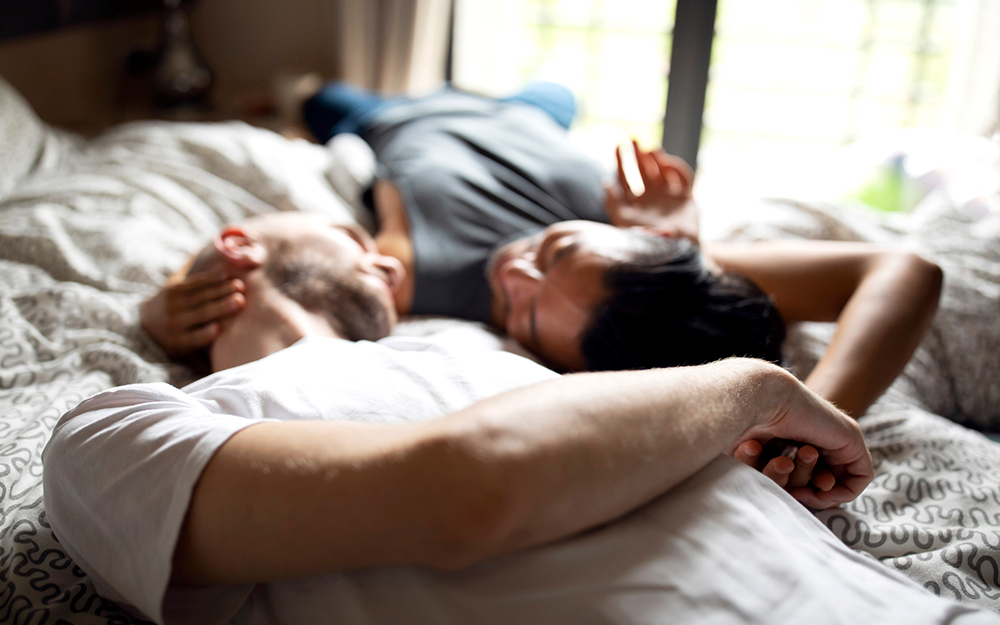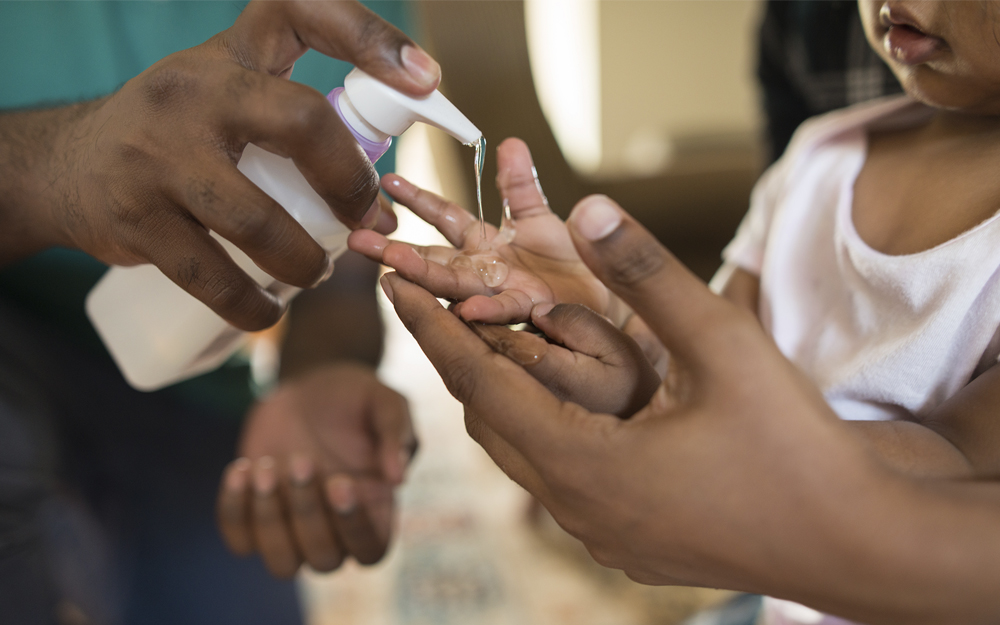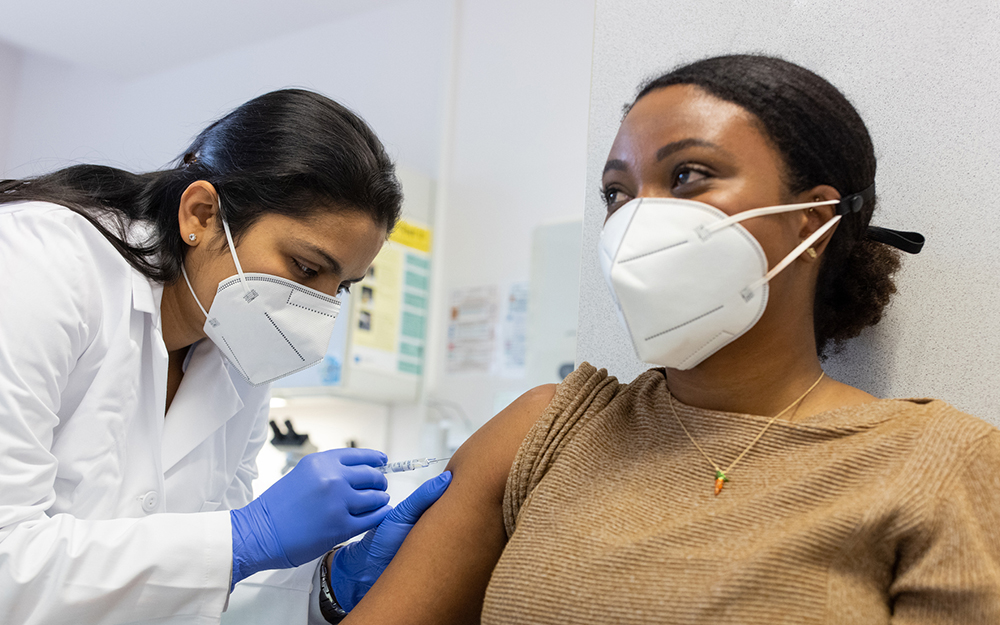Got COVID-19? Get Boosted
Date
February 9, 2022
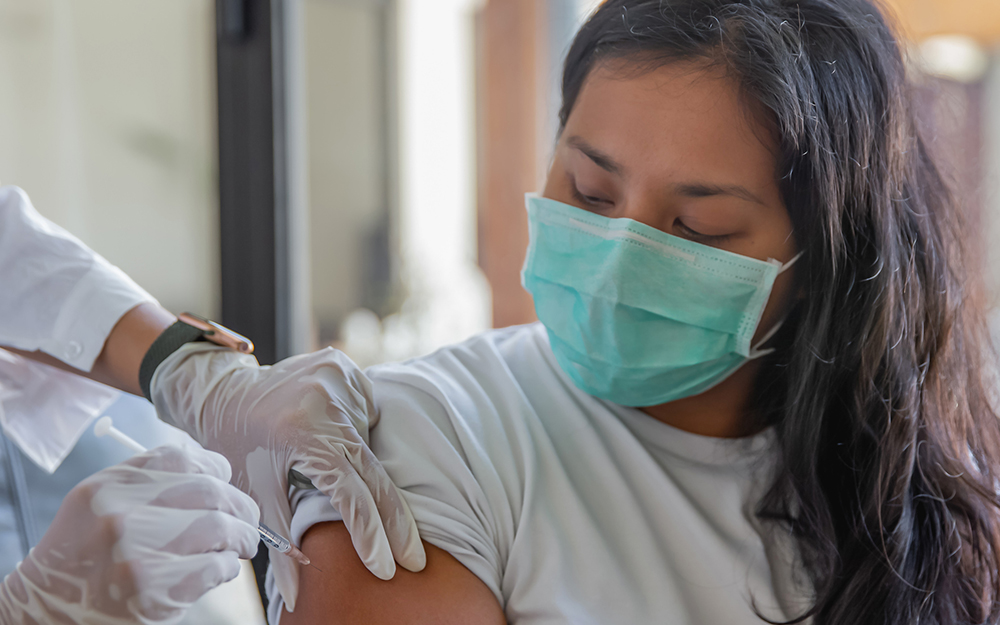
Date
February 9, 2022
Credits
Medical providers featured in this article
In Brief
{{cta-block}}
You want to get a booster shot, but you recently had COVID-19. How long should you wait?
You may have other questions, too. Will the shot's side effects be worse if you get vaccinated right after being sick? Does a booster actually protect you against reinfection, especially with contagious variants such as Omicron? What about natural immunity? Why isn't it enough?
Read on to learn about the timing, benefits and safety of getting boosted after having COVID-19.
"We can't say how long natural immunity lasts, or how robust it is for any individual person."
Count to 10
If you've had COVID-19, the Centers for Disease Control and Prevention recommends you get a booster shot as soon as you're no longer contagious. For most people, that's about 10 days after testing positive or 10 days after first noticing symptoms.
The guideline applies to people who are already eligible—which is five months after completing the initial series of an mRNA vaccine, such as Pfizer-BioNTech or Moderna, or two months after getting the Johnson & Johnson shot. The main reason for the wait is so you won't infect people at the vaccine site, not because getting boosted sooner would be bad for you.

"Whether you had COVID-19 symptoms or tested positive but felt fine, most people can and should get their booster shot as soon as they're eligible and as long as they're not infectious," says Dr. Jonathan Grein, director of Hospital Epidemiology at Cedars-Sinai. "There is solid science that shows it's both safe and smart, even if you've recently recovered from COVID-19," he adds.
Clinical trials and independent studies show that people who got a dose of an mRNA vaccine after having COVID-19 developed a strong immune response, and that boosters can keep you out of the hospital—even if you get the highly contagious Omicron variant
There is some indication that normal vaccine side effects—such as minor flu-like symptoms—may be more common, but they're rarely serious. "For the vast majority of people, any side effects are mild, last only a couple of days and are much less dangerous than symptoms from COVID-19," says Dr. Grein, adding that it's also very unlikely that a booster shot would worsen any lingering symptoms.
Exceptions to the rule: Count to 90
Ten days is the guideline for most people, but it's crucial to know if you're one of the exceptions.
"If you received monoclonal antibody treatment, such as Regeneron or sotrovimab, you need to wait 90 days after infusion before getting your booster," says Dr. Grein. "That's because the recent treatment could reduce your immune response to the vaccine."
You should also consider deferring for 90 days if you developed the rare but serious condition called multisystem inflammatory syndrome after having COVID-19.
Finally, if you are having stubborn, ongoing symptoms after recovering from a recent coronavirus infection, discuss your situation with your doctor first.
Natural immunity: Don't count on it
If you're planning to rely on natural immunity after you've been sick with COVID-19, the best medical advice is: 'Don't.
"While being infected with COVID-19 does provide some immunity, it's unpredictable," Dr. Grein explains. "We 'can't say how long natural immunity lasts, or how robust it is for any individual person."
Among other things, those questions depend on your age, how serious the symptoms were and how much time has passed. Most importantly, there's no reliable test that tells us if you are protected after having COVID-19.
"You shouldn't count on it," says Dr. Grein. "Immunity gained from vaccination is both more consistent and better studied. Some studies suggest that so-called hybrid immunity—getting vaccinated after having COVID-19—may provide more protection than prior infection or vaccination alone."
The bottom line on getting boosted after having COVID-19? Most people should wait 10 days and some people should wait 90 days, but just about everyone should get a booster as long as they are eligible.

